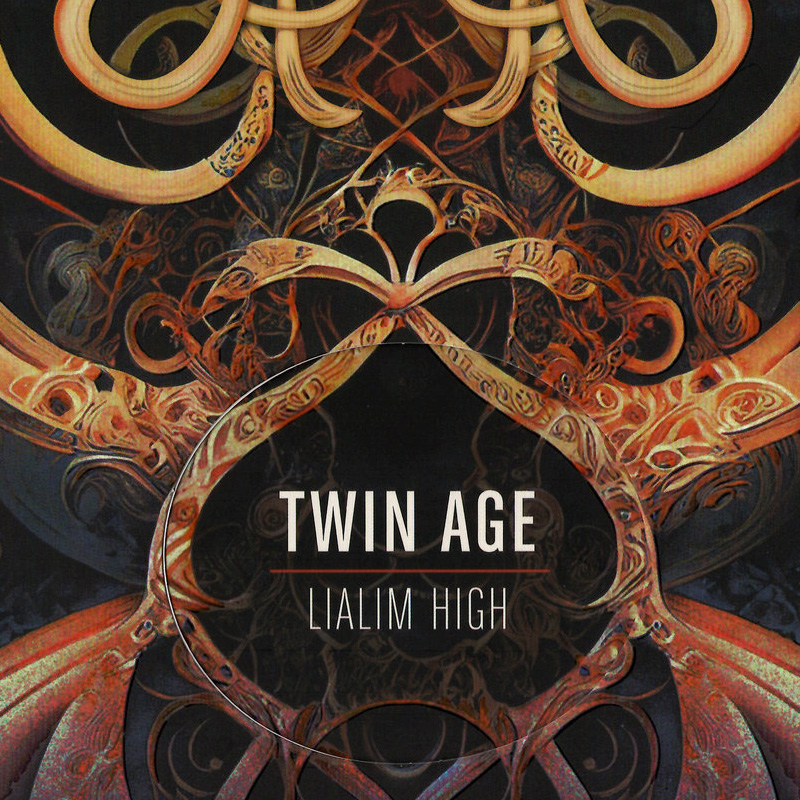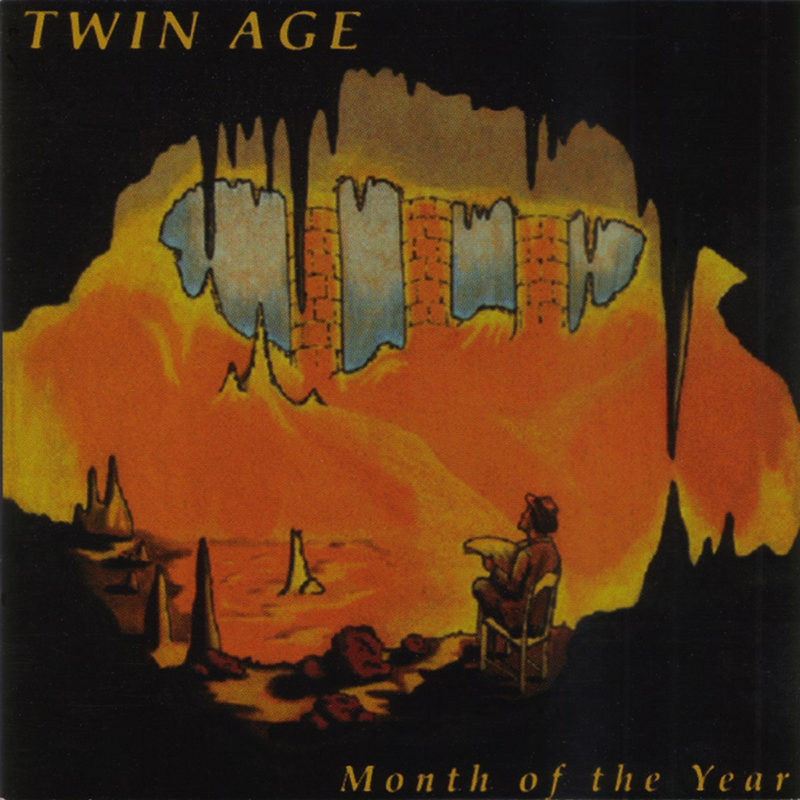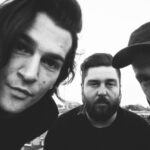Extramusic.it recently had the opportunity to interview the band in light of the 2024 reissue of their album “Lialim High.” In this insightful conversation, members of the band reflect on their creative process, influences, and the journey behind their music, spanning from the album’s original release to its recent resurgence. Dive into the intricacies of Twin Age’s approach to music-making, their thoughts on potential reunions, and how their progressive rock sound continues to resonate with audiences even decades later.
How did the band approach the creative process for “Lialim High,” and were you anticipating such a positive response to the album?
Petter: This was 25 years ago so the memories can be a little foggy, but in short it was pretty much the same as the first album. We rehearsed once a week, as I recall, and many of the parts were more or less created right there in the rehearsal room. Sometimes we improvised, sometimes we more or less sat down and “wrote”, not by notation but by experimenting and trying. The idea of a concept album was not at all clear from the start but evolved when we felt that everything seemed connected. But yes, we hoped for a positive response of course and weren’t really surprised, we felt this was a good album. Even more so now, with the remastering and the re-issue.
The release of ‘Month of the Year’ and ‘Lialim High’ in a relatively short period of time suggests a prolific period for the band. Can you tell us more about the decision-making process that led to this achievement all those years ago?
John: Well, I think one of the original ideas for the band was to create music which had all kinds of interesting stuff like odd rhythms and unusual chord choices, but at the same time try to do this in a natural way. For example, when some chord or rhythm idea came up, it would always be evaluated based on whether it could be combined with a strong melody, and if not, we generally threw it out. I think Month of the Year is a pretty good example of this, and I’m very proud of much of the material on that album. Still, we also learned a lot about what worked and what didn’t work, so when we were about to write the songs for Lialim we knew exactly how we wanted to do it. So in a sense, Month of the Year was the practice album for Lialim.
How did you strike a balance between creating lengthy, epic tracks and maintaining high musical and emotional engagement?
Petter: This was actually what it was all about. We worked really hard to achieve this, in hindsight I am the first to say we didn’t always, but when we did we created stuff I’m still really proud of. How we did it… I guess just trial and error, creating and cutting, listening and debating. We pretty much always agreed as I recall when something didn’t feel right. I can’t recall that we argued much regarding these decisions at all, really.
Genesis is mentioned as the main influence in your music. How did the band incorporate these influences while still creating a distinctive sound?
Petter: That’s true. We all had slightly different musical tastes, and each of us surely tried to incorporate influences from our own favourites. I remember myself, I was a big fan of It Bites and Saga at the time but didn’t have any luck with that, which probably was just as well. But Genesis was our common ground for sure. The distinctive sound came from our schooling I would say. We all had very different techniques of playing compared to Genesis, and a completely different set of equipment so we didn’t try to emulate their sound but played the way we did, if you get it.
John: Actually, I remember that one of the first things we talked about when forming the band was that we wanted to do something in the style of the instrumental sections of The Cinema Show and Robbery Assault and Battery, and that influence is pretty obvious, I think.
Synthesizers play a significant role in your music. Can you elaborate on the band’s approach to incorporating different instruments and creating diverse atmospheres?
Petter: They surely do. Here we may have a more Genesis-esque way of approaching it than when it comes to the rhythmic section. We arranged the music with mello strings, flutes and choir sounds as you surely hear. But also more traditional analog and digital synth sounds, and classical piano, both in sound and in playing style. But as always, Carl Johan, the keyboard player had his very own way of approaching things. Not just keyboards, I would say many things in general, in a good way.
The vocals are deeply emotional and passionate. How does Johan Hansson approach his vocal performance, and how did the lyrics contribute to the overall emotional impact?
Petter: The lyrics were mostly written by Carl Johan and John and when we decided it would be a concept album it kind of took on a life of its own. We were all sort of affected emotionally by the lyrics, at least if I can speak for myself. I’m not completely sure what it all means, but I have my own view of the overall story. So the lyrics were quite important, turning the thing into a complete experience, so to speak. Johans voice is kind of special in a nice way. He is basically schooled as a metal tenor, but with Twin Age he sings more like a deep baritone which suited the music much better, and that was a really good choice.

“Twelve Feet Tall” and “Blinded” are highlighted as standout tracks. Can you provide insight into the inspiration and creative process behind these songs?
John: I agree that these might be the two strongest songs on the album, although I like the others as well. Twelve Feet Tall in many ways feels like the perfect Twin Age song, very well structured and with chords and melodies returning in different forms and with different instruments. The instrumental section right before the slow section is one of my favorite parts on the whole album, especially the chord shifts right at the end. Actually, the whole slow section was added right before we recorded it, and this made the song much more complete I think. Blinded is more straightforward of course, and basically originated in a verse idea from me and a chorus idea from Carl Johan which were put together, and then all of us worked to put it all together as usual. I think Blinded is a perfect example of what we wanted to achieve as a band, with really weird time signatures and chord progressions which still sound natural and melodic, at least after a few listenings. The verse for example is in a fairly unexpected 9/8 with guitar and piano lines on top of each other, while the chord progression in the chorus might be my favorite one on the whole album.
“The Pelican Lie” is an extended track with repeated themes. How did the band approach composing longer tracks, and what challenges and rewards did this present?
Petter: Again, this was long ago, but as I recall we never sat down and said “let’s do a long one” but some songs simply grew into that by themselves. “The Pelican Lie” started with the bass line and evolved from that. Some of the “shorter” tracks were longer in earlier stages. For instance, on our first album there is a funny one called “Showpiece in Her Showroom” which was like twelve minutes long at an early stage, but then turned into something like five.
Carl Johan: One thing we sometimes did was to play a half-written song together in the rehearsal room and when we got to the end we just stopped, closed our eyes, and each of us tried to imagine what kind of section would fit there. Then perhaps Petter and Jörgen started to work on some rhythm idea while Carl Johan and John started working on some chord progression, and we just put it together and continued from there.
With the recent reissue of “Lialim High,” how do you reflect on the album now, years after its initial release? Are there aspects of the music or the recording process that you would approach differently today?
Petter: Probably, and not for the better. The album was recorded with analog equipment on a 16 track tape recorder and I’m absolutely sure that this added to what it became. We had to be so focused in the studio, couldn’t relax one bit. It was hard core old school recording. Play something wrong, stop tape, rewind, play again. So there are lot of small “errors” on it, if you will, but all those small things just add to the live feel of it. And the mixing process was really difficult since we had only 16 tracks. When we mixed “The Pelican Lie” we were like five guys with an exact set of instructions throughout the play-through, crawling on this mixing board. And some of the channels had to be shared. I remember I was responsible for, was it the snare drum channel maybe, that became the flute or something in the middle section with no drums, then back to snare. All parameters on that channel had to be changed on the fly to flute and back again. So mixing was really an adventure, an ordeal, but I wouldn’t wanna be without that memory, it also added to the overall feel. Today all of that would be done digitally of course. Actually, just the year after, pretty much the whole industry went all digital.
After the reissue of “Lialim High,” is there an intention to proceed with reissuing the other two albums?
Petter: Not the last one, for my part I’m not really that fond of it. Some of the songs, yes, but perhaps not as a whole. The first one is nice though, would love to have that on vinyl some day. But no plans, no.
Is there any unreleased material from the time of recording “Month of the Year” and “Lialim High”? If so, is there a possibility of it being released in the future?
Petter: We have some home video recordings from the rehearsals and recording sessions, but nothing that we plan to make public, no.

Considering the recent interest in your music due to the reissues, are you contemplating a band reunion?
Petter: We have officially never stopped, and we still often see each other. We have talked about new music for 25 years, haha. We’ll see what happens. I’m sure we would do some occasional festival gig playing Lialim songs if someone asked us.
In the event of a reunion, is there a possibility of working on new material and perhaps releasing a new album?
Petter: New material is, I said, maybe a bit down the road. But who knows. We are still young!
Fans of your music would be excited about the idea of a tour. Are there plans to perform live or go on tour to support the reissues and potentially new material?
Carl Johan: No plans, but it would be fun to play with the others again on stage!
Over the years, how do you think your music has evolved or might evolve in the future, considering the changing styles in the progressive rock scene?
Petter: Listening to the albums now, the music has aged pretty well, I think, which is a bit of a surprise to me, I don’t think I believed that 25 years ago. This kind of music has a very long….expiration date, just look at the music from the 70s. If, and really if, we were to make new music I really hope it would have the same vibe. We, or at least I, haven’t followed the prog scene very closely for the last few years so I really don’t know what the “style” is right now. I guess mellotrons and Rickenbackers are still around.
Have you had any contacts or interactions with other progressive bands throughout your career? Are there collaborations or musical encounters you would like to pursue?
Petter: Not that much actually, we got some help with distributors for our first album from the Swedish band Anekdoten early on. And back in the day we occasionally met other Swedish bands or played gigs with them. As I said, we don’t know that much about the scene right now. One guy I have followed these last 25 years, I don’t know him of course but admire him, is Steven Wilson. At least early on in Porcupine Tree’s career, I feel that we were very much on the same page musically, so of course it would be nice to talk to him one day. I think he would dig some of the stuff we did. Or at least a younger Steven Wilson would.
What is the meaning behind the lyrics of the songs ‘My Dreams Are FulFilled’ and ‘Two Stories’ on the last album?
Carl Johan: Both those songs are about the choice between freedom and responsibility, whether it’s about a kid becoming an adult or an artist who wants to keep fooling around and refuses to take any kind of responsibility in life. In general, the lyrics on the third album are more concrete and in some ways a step away from the more typical features of the progressive rock genre, which was something we wanted to try at that point.



